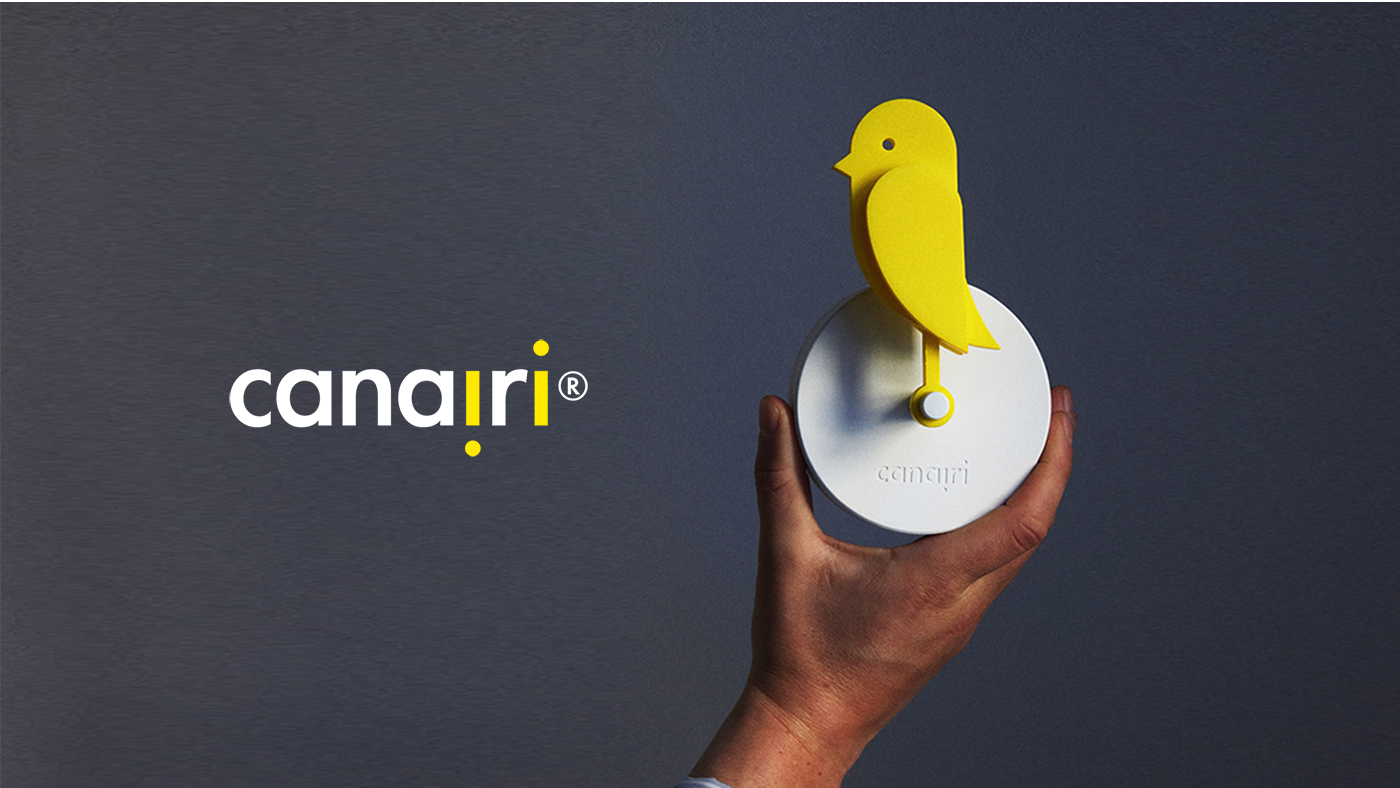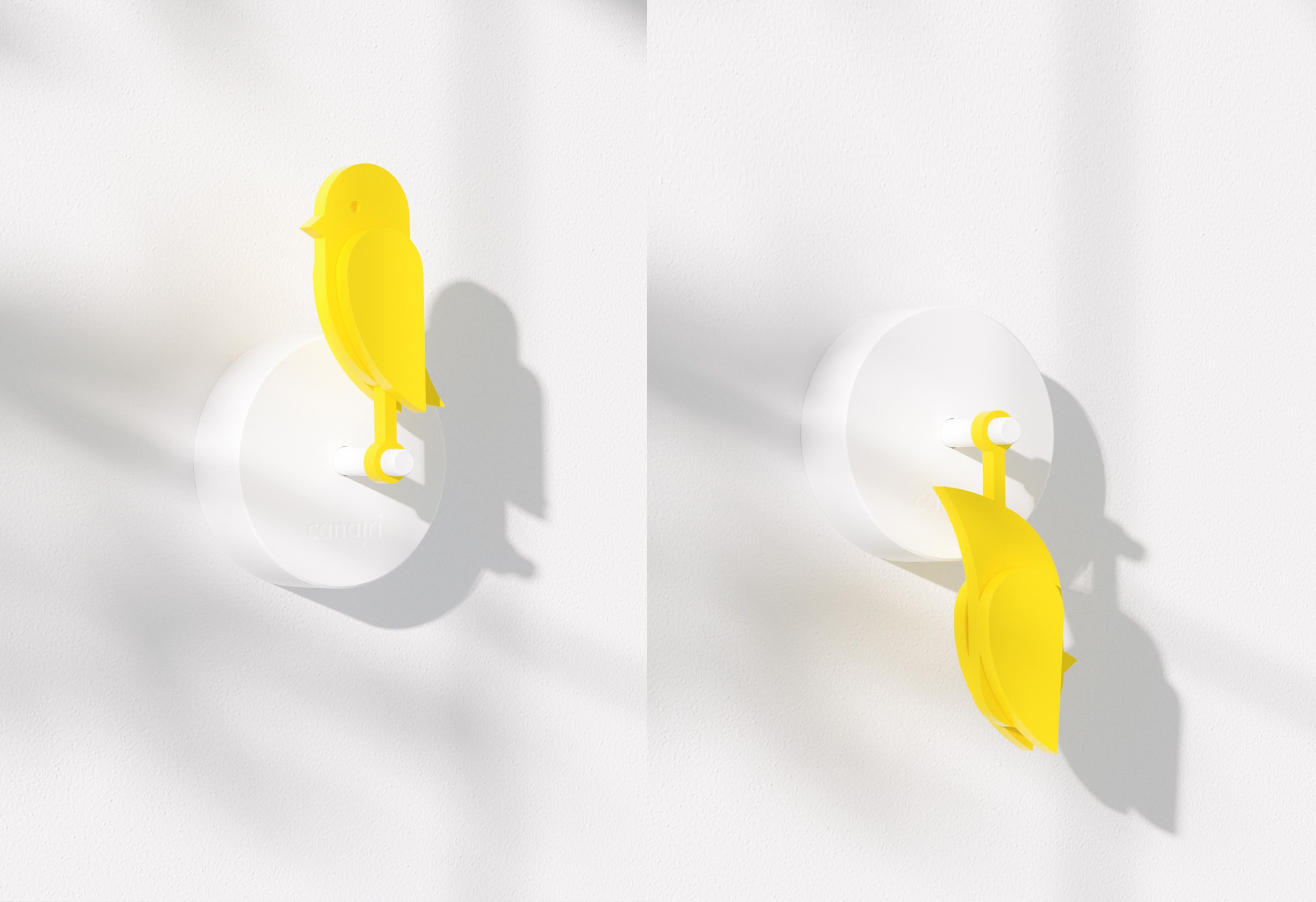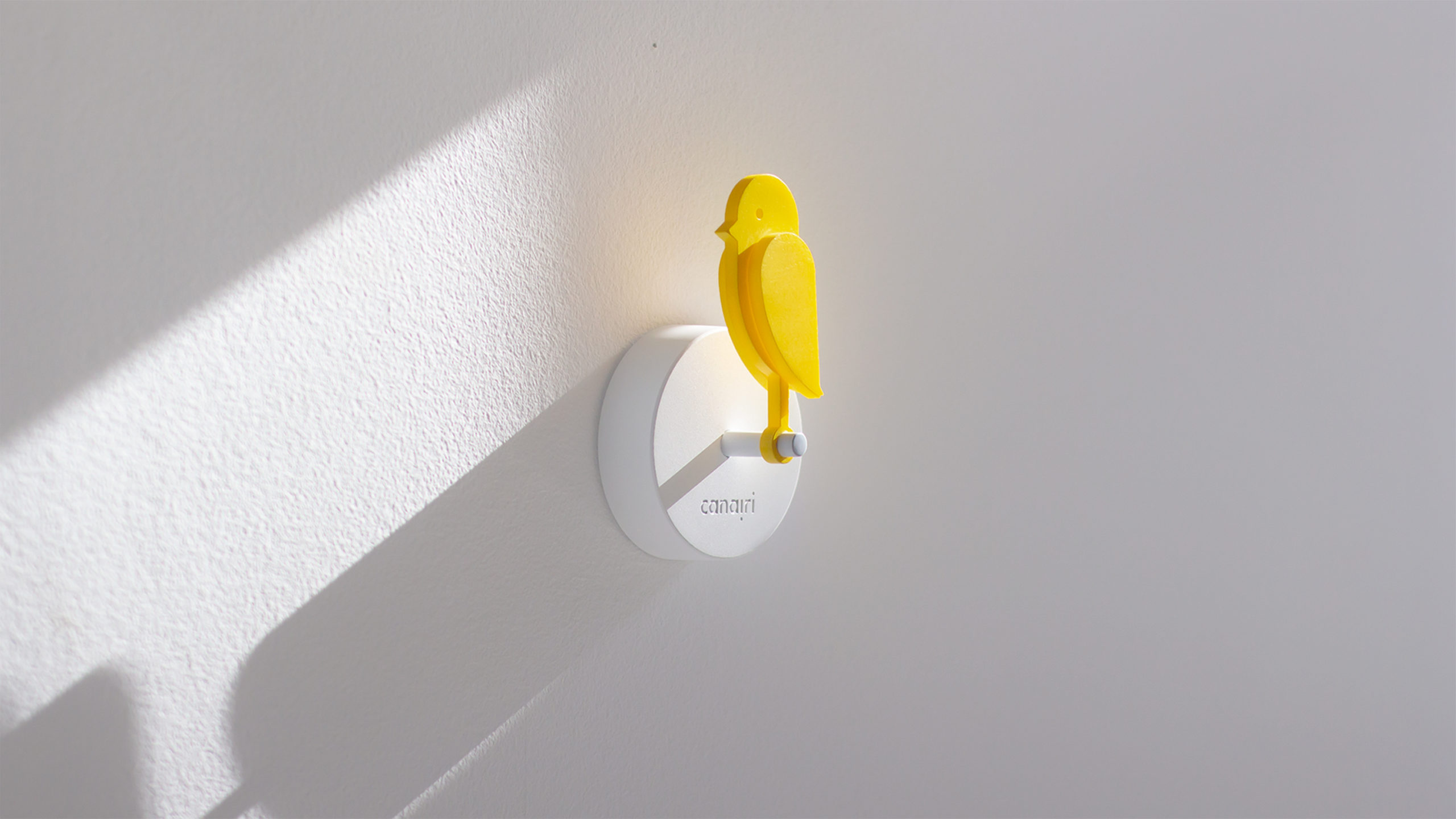Canairi

Useful information
- Team members
- Hans Høite Augustenborg Andreas Kofoed Sørensen
- Country
- Denmark
- Keywords
- design innovation fun inspiring storytelling
Short Description
Canairi is a CO2 monitor that measures indoor air quality and encourage you to ventilate your home.
Detailed Description
90 percent of our life is spend indoors - most of us in homes with poor indoor climate. A poor indoor climate increases risk of asthma, headache, fatigue and sleep disorders. Experts suggests that the best way to improve the air quality of our home is to ventilate it frequently. The pandemic has also made this very clear. Unfortunately, this can be difficult task to manage when living a busy life. This is a huge but invisible problem, calling for a visible solution - so we looked for one and came to think of 'the canary in the coal mine'.
In the early 1900s it was common practice for mineworkers to bring a canary into the coal mine to detect toxic air. When the bird fainted it was time to get out. Canairi works exactly the same - but in your home. When the air quality becomes poor, Canairi will drop down, warning you about poor indoor air quality. The moment you open your windows and reestablishes a good air quality, Canairi raises back up. Simple as that.
Project Details
- Does your design take social and cultural challenges and human wellbeing into consideration?
Unlike other air quality monitors, Canairi will let you know when to ventilate your home without the use of light, sound or phone notifications. Canairi stands out by using Storytelling and Gamification as nudging mechanisms to encourage the user to take action and change behaviour.
The democratic design language makes it simple for children to understand, but also invites the minimalist adult to play along. Canairi is made of recycled plastics and equipped with a CO2-sensor, a PCB-board, a step-motor a rechargeable battery and a wall-mount.
We like to see Canairi as an intuitive solution to a complex problem. The main challenge during the design process, has been to strip the product down to the very essentials and not get carried away by multi-functionality and IoT-integration.
- Does your design support sustainable production, embodying circular or regenerative design practices?
We use recycled and recyclable plastic for our product.
- Does your design use principles of distribution and open source?
We know that a lot of our followers loves 3D-printing and coding. So we made it possible to create your own 3D-printed Canairi. It's very easy if you have your own 3D-printer and just a little experience with Arduino. Pledge 99 DKK ($15) to create your own Canairi.
If you have ideas for improving the product, we have open-sourced the code on Github for people to contribute to Canairi.
- Does your design promote awareness of responsible design and consumption?
We don't have an app, because we think we spend enough time on our phones already. We like to consider this design choice as responsible towards the user.
Here is a quote from Trendwatching.com doing a pretty good job pointing out why this makes sense in the times that we're living in: ‘’Canairi is an intentionally dumbed-down device, offering a simple visual cue that it's time to open a window or two. In a world dominated by screens, there's power in going intuitively analog.''
Images


